Archaeology of Contemplation by Grada Kilomba
“Just as a continent with millions of people cannot be discovered, neither can one of the most tragic periods of humanity be erased.”
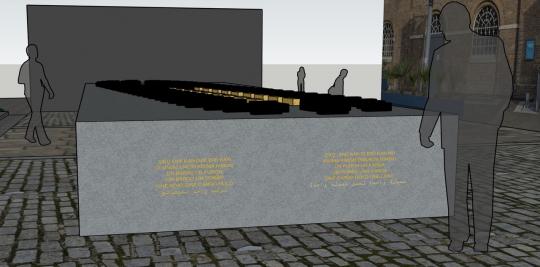
For this memorial site, I revisit the image of a boat as a metaphor of remembrance. Western imagery often associates boats with glory, adventure, freedom and maritime expansion – an era of ‘discovery’. However, just as a continent with millions of people cannot be discovered, neither can one of the most tragic periods of humanity be erased.
I propose a poetic sculpture to foster reflection around the Middle Passage. The Middle Passage was the brutal voyage of millions of enslaved Africans across the Atlantic into forced labour in the Caribbean and Americas. In horrendous conditions, people were transported as cargo by the British and other European nations. This sculpture carefully reveals the bottom of these boats, making visible the invisible.
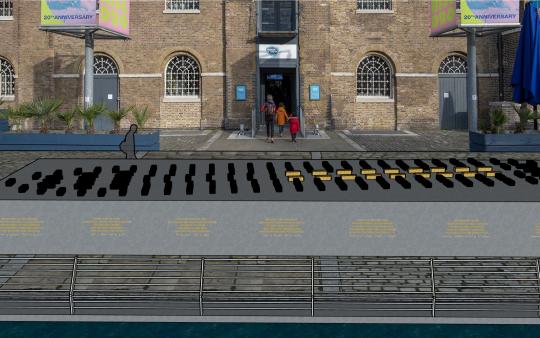
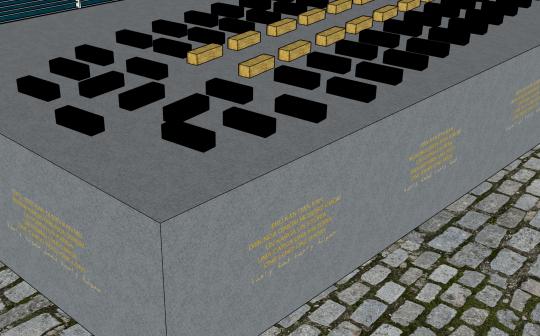
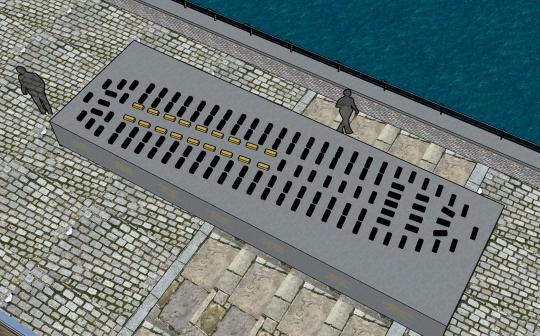
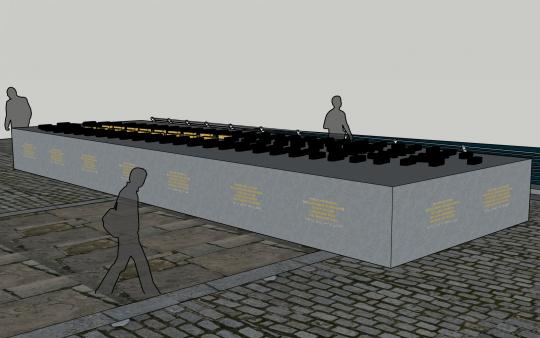
On a 11 metre-long concrete and stone rectangle, lies the archaeology of a boat showing the cramped space that housed the bodies of trafficked Africans. A composition of 140 pieces cast in black bronze surround 18 golden bronze pieces, honouring the victims. The sculpture is engraved with a poem written by me. Through workshops, the poem will be translated into six languages spoken by descendant African diaspora communities across London.
The sculpture represents one of the boats that departed from these docks 200 years ago. I will replace the plinth – on which once stood the statue of slave trader Robert Milligan – with a long seating area, where remembrance and contemplation can take place.
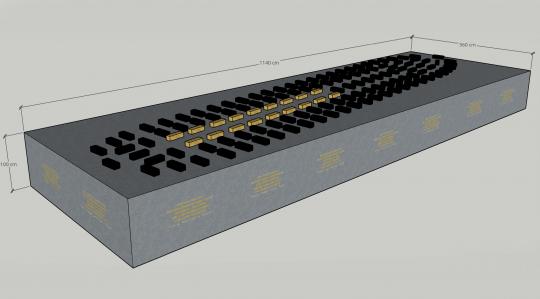
Satellite artwork and engagement
For the satellite sites, I propose installing a small-scale model of the larger monument situated at the Museum of London Docklands. I’ll use the same approach to researching and translating the poem as proposed with the primary site, engaging the communities from the areas surrounding the venues.
Working closely with communities descended from formerly enslaved people, I will commission the translation of the poem into their respective languages, for example Yoruba. In a gesture of warmth and recognition, these diasporic languages will be engraved around the sculpture, alongside English. This will permanently weave the presence of global diasporas into London’s contemporary public space.
In this way, the London memorial will honour the many diasporas impacted by the British colonial enterprise and showcase the diverse populations in London through their languages.
The Boat (2021)
Poem by Grada Kilomba
one boat, one cargo hold
one cargo hold, one load
one load, one story
one story,
one piece one piece,
one life one life,
one body one body,
one person one person,
one being one being,
one soul one soul,
one memory one memory,
one oblivion one oblivion,
one wound one wound,
one death one death,
one sorrow one sorrow,
one revolution one revolution,
one equality one equality,
one affection one affection, Humanity
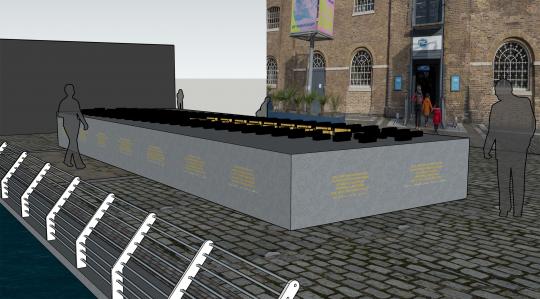
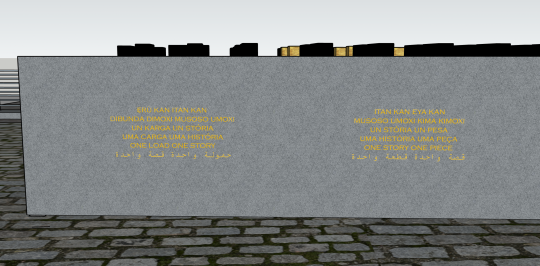
Meet the artist: Grada Kilomba
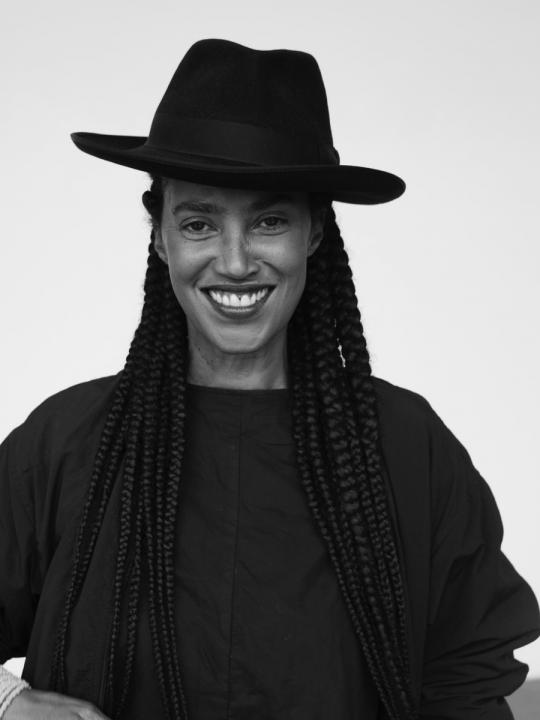
Grada Kilomba is a Berlin-based Portuguese artist, with roots in Angola and São Tomé e Príncipe, whose work draws on memory, trauma, gender and post-colonialism. ‘What stories are told? How are they told? And by whom?’ are constant questions in Kilomba’s body of work. Kilomba holds a distinguished Doctorate in Philosophy from the Freie Universität Berlin, and in 2023 was awarded the Doctorate Honoris Causa by University of ISPA, Lisbon. Her acclaimed installation and performance O Barco | The Boat (2021) was presented at Somerset House in London in 2022.
Other selected exhibitions include:
-
La Biennale de Lubumbashi VI
-
10th Berlin Biennale
-
Documenta 14, Kassel
-
32nd Bienal de São Paulo.
-
The Palais de Tokyo, Paris
-
Amant Art Foundation, New York
-
The Noval Foundation Art Museum, Cape Town
-
The Power Plant, Toronto
-
Museum Calouste Gulbenkian, Lisbon
Grada Kilomba is represented by Goodman Gallery Johannesburg, Cape Town, London.
Cast your vote for the Memorial commission
Vote for an artistNeed a document on this page in an accessible format?
If you use assistive technology (such as a screen reader) and need a version of a PDF or other document on this page in a more accessible format, please get in touch via our online form and tell us which format you need.
It will also help us if you tell us which assistive technology you use. We’ll consider your request and get back to you in 5 working days.